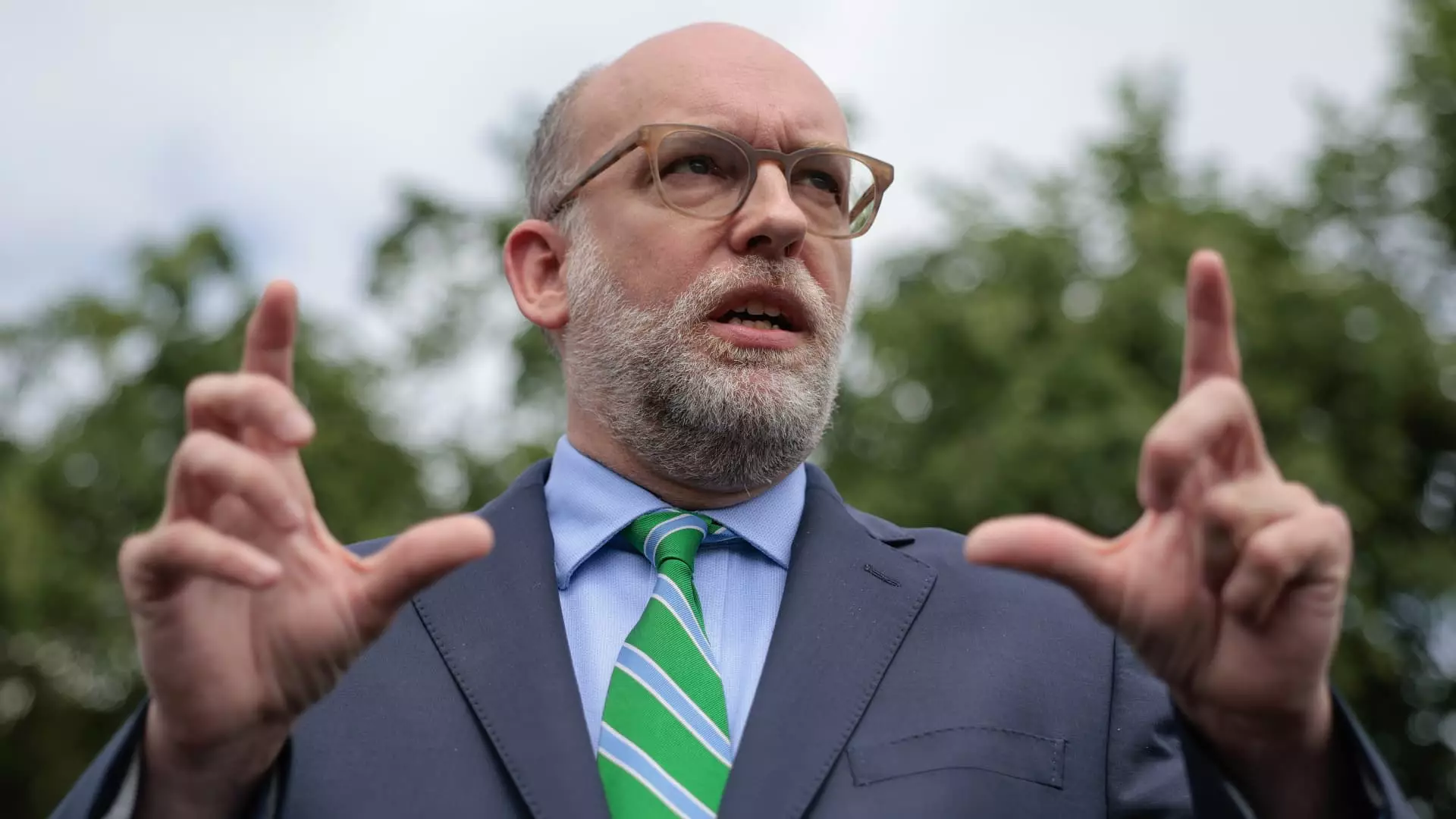The controversy surrounding the renovation of the Federal Reserve’s headquarters exposes a disturbing trend: a culture of extravagance masked as essential infrastructure improvement. What once might have been justified as necessary updating has devolved into a spectacle of excess, symbolized by the so-called “palace” that critics now decry as emblematic of governmental mismanagement. The dissonance here is stark; taxpayer money, intended to sustain a critical financial institution, appears to be squandered on ostentation rather than prudence. When public funds are allocated without transparency or accountability, trust erodes—a fragile commodity in a period marked by economic insecurities and rising political cynicism.
The idea that the Federal Reserve, a pillar of economic stability, should indulge in such grandeur at a time when fiscal discipline is paramount is troubling. The accusation of a $2.5 billion overrun not only raises questions about fiscal stewardship but also about priorities. Should a central bank dedicated to safeguarding the economy be obsessively preoccupied with creating a lavish campus? This project, cloaked in the rhetoric of modernization, seems more like a vanity project that fuels disillusionment with a system perceived as out of touch and disconnected from the everyday struggles of citizens.
Leadership on the Brink: A Question of Integrity and Competence
Beyond the fiscal controversy, the charged rhetoric aimed at Fed Chair Jerome Powell underscores a worsening crisis of confidence. Allegations that Powell “grossly mismanaged” the Fed, coupled with claims of misleading Congress about the renovation costs, highlight a broader concern: the integrity and transparency of leadership at a time when trust in institutions is fragile. The framing by Vought and others as part of an ongoing political attack underscores a dangerous dynamic — one where partisan politics threaten to undermine a critical pillar of economic stability.
Central to this issue is a fundamental question: How can a central bank maintain credibility if its leadership is viewed as arrogant or secretive? Powell’s insistence that politics don’t influence monetary policy seems to do little to quell the increasing skepticism. The recent appointments—Whose roots are heavily tied to the White House—raise alarm about the potential politicization of these appointments and decisions, eroding the independence vital for effective monetary policy. The temptation for politicians to leverage issues like building renovations as a means to weaken or dismiss the Fed’s leadership underscores the perilous line between oversight and interference.
The Politics of Distrust and the Power Play at Play
In an era where polarization dominates, the burgeoning spat over the Fed’s spending could be exploited by political actors seeking to undermine the institution’s legitimacy. Trump’s vocal dissatisfaction, coupled with the threat to dismiss Powell for allegedly mismanaging the renovation project, reveals a troubling use of fiscal issues as leverage in broader political battles. It signifies a disturbing shift from legitimate oversight to a tactics-based approach characterized by blame-shifting and revenge politics.
Furthermore, the legal nuances surrounding the Fed’s authority over facilities, and the question of whether the Office of Management and Budget has oversight, point to an underlying chaos within the governmental coordination of financial institutions. Such disputes are not trivial—they threaten to destabilize a system that operates best with clarity, independence, and accountability. When leaders use fiscal scandals to justify regulatory encroachments or personnel changes, it undermines the delicate balance that maintains market stability.
Understanding the Broader Implications
This controversy is symptomatic of a deeper malaise: a government increasingly susceptible to populist accusations and demagoguery at the expense of governing with prudence. Mismanagement, whether real or perceived, becomes a weaponized issue fueling distrust in expert-led institutions. The Fed’s independence, an essential cornerstone of monetary stability, is under siege not merely because of financial missteps but because of how those missteps are politicized.
The administration’s focus on perceived waste and mismanagement might resonate with those who view government as inherently flawed; yet, it risks overlooking the nuanced, often complex responsibilities that a central bank bears. While accountability is necessary, framing the Fed as an extravagant “palace” is an oversimplification—one that ignores the critical importance of maintaining modern infrastructure in sustaining trust and operational integrity. Still, this crisis of perception feeds into broader narratives questioning whether the institution is fit for purpose in a volatile economic environment.
A Call for Reason, not Revenge
Ultimately, the dispute illustrates a failure of leadership—on all sides—to approach governance with the necessary seriousness. Politicians should prioritize substantive oversight and constructive critique rather than resort to tactics rooted in humiliation or political revenge. The central bank’s independence is paramount; allowing spectacle and scorn to dictate policy risks plunging the economy into uncertainty. As the party of responsible liberalism, there is a responsibility to advocate for a balanced approach—recognizing inefficiencies and demanding transparency while safeguarding the independence of institutions vital for economic stability.
The public deserves a system rooted in fairness and competence, not recrimination and spectacle. The issues at hand—fiscal mismanagement, politicization, and leadership credibility—must be addressed with integrity and a sense of shared purpose. If the goal is sustainable economic growth and protection for the many, not just the politically motivated few, then the path forward calls for accountability grounded in fairness and informed judgment—less spectacle, more substance.

